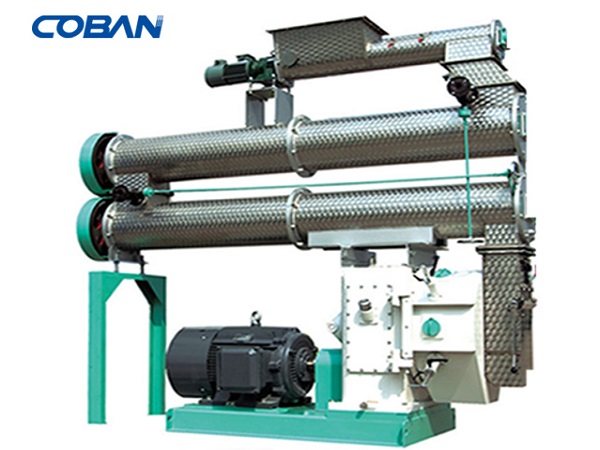Pellet Machine Procurement in Philippines
Pellet machine procurement is a critical process for businesses involved in agriculture, biomass fuel production, and other industries requiring efficient pelletizing equipment.
- Cattle feed production line procurement in Philippines
- Cattle Feed Production Line Manufacturer in Philippines
- Cattle Feed Production Line Supplier in Philippines
- Cattle Feed Production Line Price in Philippines
- Cattle Feed Production Line Sales in Philippines
- Maintenance Methods for Cattle Feed Production Line in Philippines
- Installation Process of a Cattle Feed Production Line in Philippines
- Structure composition of cattle feed production line in Philippines
- Main advantages of Cattle Feed Production Line in Philippines
- Main functions of cattle feed production line in Philippines
Pellet Machine Procurement: Ensuring Optimal Equipment Selection
Pellet machine procurement is a critical process for businesses involved in agriculture, biomass fuel production, and other industries requiring efficient pelletizing equipment. This article will delve into the benefits of pellet machine procurement, key considerations, types of pellet machines, and future trends in the industry.


Benefits of Pellet Machine Procurement
Pellet machine procurement offers several advantages to businesses. By carefully selecting the right equipment, companies can enhance their production efficiency and product quality. Additionally, the procurement process allows businesses to source equipment that fits their specific needs, ensuring optimal performance and cost-effectiveness. Furthermore, engaging in thorough procurement practices helps in identifying reliable suppliers and manufacturers, which in turn supports long-term business growth.
Key Considerations in Pellet Machine Procurement
When engaging in pellet machine procurement, several key factors need to be considered to ensure the best outcomes:
Production Capacity
Understanding the required production capacity is essential to select a machine that meets the output demands of the business.
Material Compatibility
Different pellet machines are designed to handle various raw materials, such as biomass, agricultural residues, and feed ingredients. Ensuring the machine’s compatibility with the intended materials is crucial.
Energy Efficiency
Energy consumption is a significant cost factor. Choosing an energy-efficient pellet machine can reduce operational costs and support sustainability goals.
Quality and Durability
Investing in high-quality and durable equipment ensures long-term reliability and reduces the frequency of maintenance and repairs.
Supplier Reputation
Selecting a reputable supplier with a proven track record of providing quality equipment and reliable after-sales support is vital for smooth operations.


Types of Pellet Machines
There are several types of pellet machines available in the market, each designed for specific applications:
Flat Die Pellet Machines
These machines are suitable for small-scale production and are often used in small farms and household operations. They are versatile and can handle various raw materials.
Ring Die Pellet Machines
Ideal for large-scale production, these machines are commonly used in commercial feed mills and biomass fuel plants. They offer high production efficiency and consistent pellet quality.
Mobile Pellet Machines
These portable machines are convenient for on-site processing, particularly useful for operations that require mobility and flexibility.
The Procurement Process
The pellet machine procurement process involves several steps to ensure the best selection and purchase of equipment:
Needs Assessment
Identify the specific requirements of the business, including production capacity, material type, and budget.
Market Research
Conduct thorough research to find potential suppliers and manufacturers. Compare their offerings based on quality, price, and reputation.
Request for Proposals (RFP)
Issue RFPs to shortlisted suppliers to get detailed proposals, including technical specifications, pricing, and delivery timelines.
Evaluation and Selection
Evaluate the received proposals based on predefined criteria and select the supplier that best meets the business needs.
Negotiation and Contracting
Negotiate the terms and conditions, including pricing, delivery, and after-sales support, and finalize the contract with the chosen supplier.
Future Trends in Pellet Machine Procurement
As technology advances and market demands evolve, several trends are shaping the future of pellet machine procurement:
Automation and Digitalization
Increasing adoption of automated and digitalized systems in pellet machines enhances efficiency and reduces human intervention, leading to higher productivity and lower operational costs.
Sustainable Practices
Growing emphasis on sustainability is driving the development of energy-efficient and environmentally friendly pellet machines. Businesses are increasingly seeking equipment that supports their sustainability goals.
Customized Solutions
Demand for customized pellet machines tailored to specific business needs is rising. Manufacturers are focusing on offering bespoke solutions to meet diverse customer requirements.
Global Sourcing
With the globalization of supply chains, businesses are exploring international markets to find the best pellet machine suppliers. This trend is expanding the range of available options and competitive pricing.
Conclusion
Pellet machine procurement is a vital aspect of ensuring efficient and effective production in various industries. By considering factors such as production capacity, material compatibility, energy efficiency, and supplier reputation, businesses can make informed procurement decisions. The future of pellet machine procurement looks promising, with trends like automation, sustainability, and customization driving innovation and growth in the industry.







